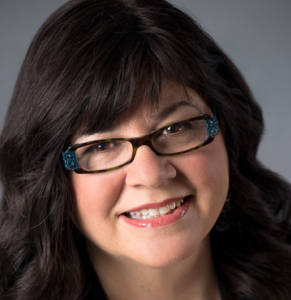On the one hand, we are elevated, each soul, a precious and unique possession, and yet on the other, we should be indistinguishable as shifting sand. Which is right?
This week’s Torah portion Bamidbar, meaning “in the wilderness” or “in the desert,” is always read before the holiday of Shavuot, which is when we received the Torah on Mount Sinai.
The classic commentary on this is that the best state in which to receive Torah is when we make ourselves into a desert, when we nullify our egos and enter into a state of total humility.
That makes a lot of sense. The desert is an appropriate place for encounters with the Divine (think Burning Bush) as well as the setting for spiritual journeys. There are no material distractions, no cultural noise, no exits from its stark reality.
The opening line of the Torah portion is: “And God spoke to Moses in the desert.” The word midbar (desert) and vayedaber (speak) share the same root, and so the relationship between desert and speech – divine speech – is beautifully correlated.
Today, we don’t have to be physically in a desert; by consciously stripping away the layers of egocentricity that distort our clarity and shutting out the noise that distracts us, we can transform ourselves into a desert that is open and receptive.
That, in a nutshell, is an oft-repeated theme with this Torah portion, but in my opinion, it’s only half of the picture. Focus on that idea alone (as great as it is) and we’re missing out on a really great paradox.
The first line ends with God’s command to Moses to take a census. On the surface, that seems like nothing more than a bureaucratic practicality. Rashi, the medieval Biblical commentator, however, gives us a beautiful and deep insight, and so the underlying message is that God loves us and counts us, just as we like to count our prized possessions. By God’s calculations, we are not counted by ability, wealth or status, but by identity – signaling that we are unique, precious and beloved. No two people are alike, no one can contribute to the world in the same way, and so, we are singularly purposeful.
But here’s the contradiction. On the one hand, we are elevated, each soul, a precious and unique possession, and yet on the other, we should be lowly, like a barren desert, indistinguishable and insignificant as shifting sand. So which is right? The Jewish answer is, of course, that both are right. It’s a Jewish paradox.
The Genius of the ‘And’
In fascinating research done at the Stanford Business School, Jim Collins was able to provide answers as to why some companies are visionary and successful and others are not. It seems to depend on the companies’ ability to choose between seemingly contradictory concepts and the ability to embrace both sides of the coin, adopting a strategy known as the “genius of the and” and rejecting thinking characterized as “the tyranny of the or.” Being limited by either/or thinking isn’t good for corporations and it certainly isn’t good for people either.
When it comes to receiving the Torah, we must humble ourselves, create the space to take it in and give up some of our identity. As Marianne Williamson says, “When the ego steps back, the power of God steps forward.” But when it comes to living Torah, on the other hand, we must stand tall and be counted and know who we are. We were created and yearn to reach our highest possibilities. Being a light unto nations and repairing the world is simply not a job for wimps.
And so the beautiful paradox is that we must always simultaneously embrace both sides of the coin if we are to understand either side of the coin, and that is a lesson not just in preparation for Shavuot, but for any time of the year.
Send Passover Packages to Needy Israeli Soldiers - Bring Them Joy!
We are honored to thank the young men and women of the IDF who risk their lives every day to protect the citizens of Israel. Since October 7th, soldiers have been on the battlefield for months - many are hoping to come home for Passover.
Join us in sending Passover food packages (and personal notes) to Israeli soldiers and their families.
Many soldiers spend the Passover holiday with needy families back home. The soldiers greatly appreciate your love and concern. Bring them Passover joy!
CLICK HERE TO SEND YOUR PACKAGE AND NOTE TO ISRAELI SOLDIERS!




